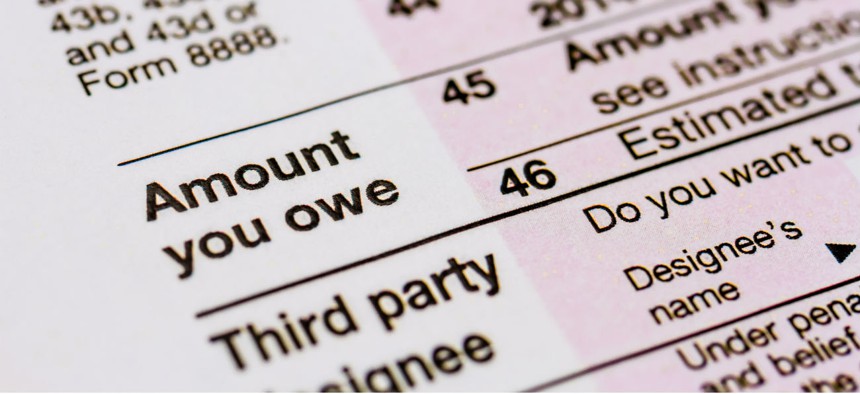
By Teri Virbickis / Shutterstock.com
IRS Staffs Up As a Result of Disputed Private Debt Collection Program
With revenue projected to double, 200 specialized workers will be hired.
In its latest congressionally-mandated report on contracting out collection of recalcitrant tax debts, the Internal Revenue Service said it is hiring 100 specialist staffers this fall and plans to bring on another 100 in a year.
The revival of an earlier program required by Congress in 2015 contracts with four private companies which, under specified rules, go after delinquent taxpayers the IRS has been unable to collect from. Critics—including the just-departed National Taxpayer Advocate Nina Olson—blast the public-private partnership for superseding an IRS core function and for deploying company bill collectors who are not always sensitive to the challenges of low-income taxpayers.
The new report said the program brought in more than $82 million in fiscal 2018, a figure projected to rise to $114 million for 2019 and again in 2020. By law the Treasury secretary cannot reroute the program's proceeds, but must channel them back into the debt collection program.
Boosters, such as Senate Finance Committee Chairman Chuck Grassley, R-Iowa, praised the program, noting its reliance on IRS in-house staff called “special compliance personnel.” Efforts by that category of worker are projected by the end of fiscal 2019 to have collected $6.7 million, an amount the agency thinks will double in fiscal 2020, to $13.5 million.
“Data continue to show that the Private Debt Collection program is working,” Grassley said in a Wednesday release of the report. “This is the most recent in a series of reports that have given me confidence in the program’s ability to make the system fairer for law-abiding citizens while also strengthening the effectiveness of the IRS.”
The collection industry coalition called the Partnership for Tax Compliance was also supportive.
“We are very pleased to see the Special Compliance Personnel Program beginning to ramp up,” the nonprofit said in a statement. “Over time, the program will effectively work with taxpayers to help them meet their commitments to the federal government, ultimately strengthening the U.S. Treasury. Twenty-five percent of ongoing collections made by the Private Debt Collection Program support the SCPP, which has allowed the IRS to build a unique, stand-alone tax collection program that’s fully self-funded. The agency is treating this just as the statute intended–as permanent appropriations covering salaries, benefits, training, overhead, infrastructure and even technology–which will allow the [special compliance program] to continue functioning, even during budget battles in Congress.”







